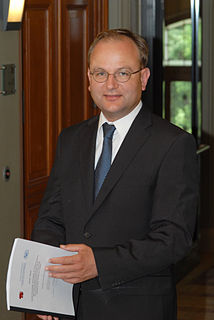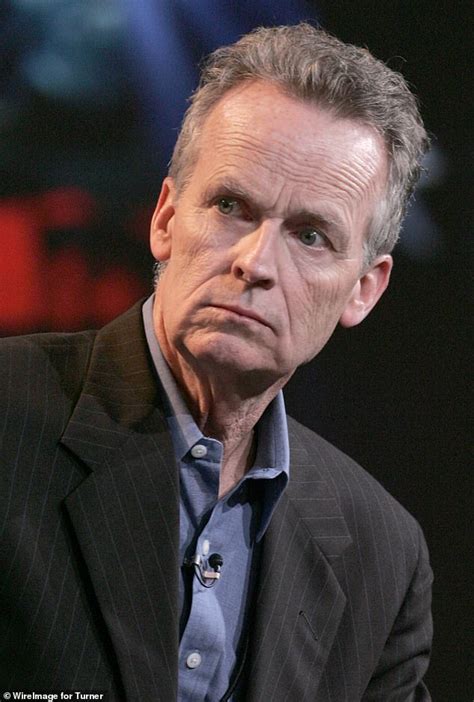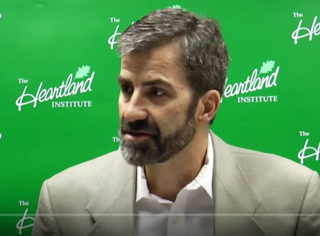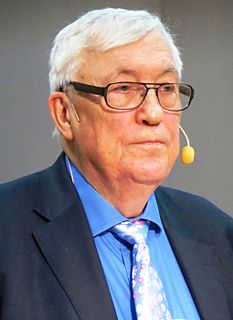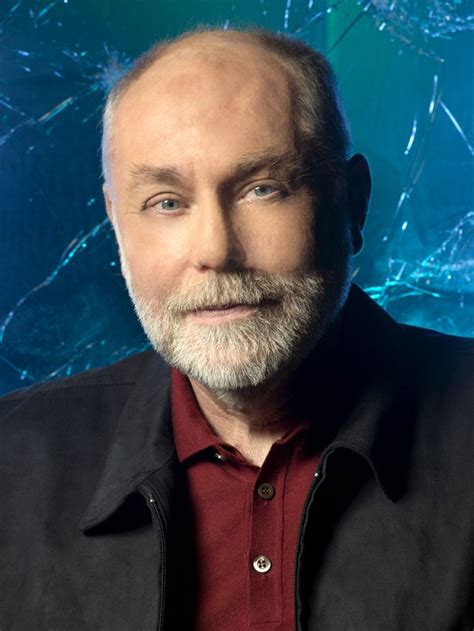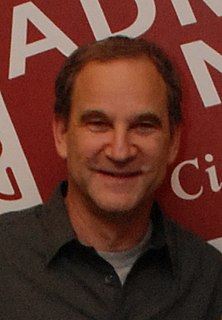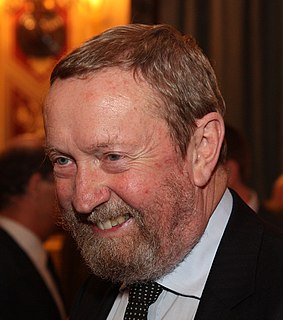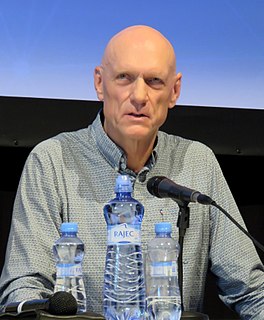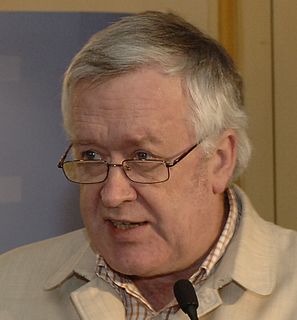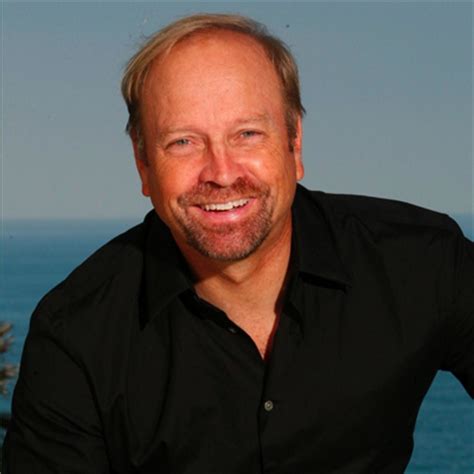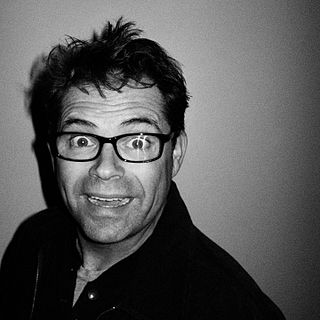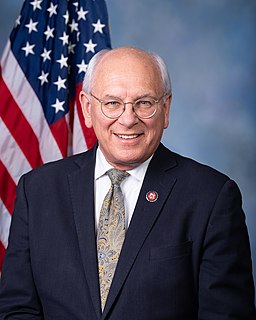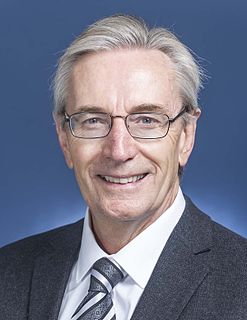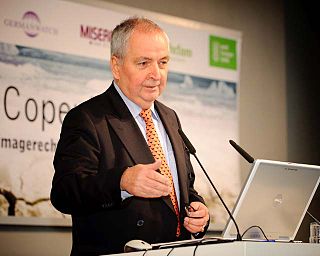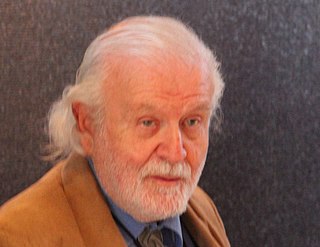Top 1200 Climate Quotes & Sayings - Page 5
Explore popular Climate quotes.
Last updated on April 22, 2025.
First of all, developed countries have basically expropriated the atmosphere of the world community. But one must say clearly that we redistribute de facto the world's wealth by climate policy. Obviously, the owners of coal and oil will not be enthusiastic about this. One has to free oneself from the illusion that international climate policy is environmental policy. This has almost nothing to do with environmental policy anymore.
The Caring for Climate initiative is fully aligned with our own explicit commitments, which reflect our respect for society in which we operate, respect for the environment, respect for the future generations. Climate change must be addressed through mutually beneficial collaboration and multi-stakeholder channels to be effective ultimately.
Unfortunately, there's a big, bad new bully threatening ocean animals, climate change. We might save fish only to have them starve because of climate change. It seems like the problems just won't stop. That's what got me to quit my cushy University job and take a big pay cut to work on conservation.
Overall, The Population Bomb was probably too optimistic. I was writing about climate change - Anne and I actually wrote the book. We discussed whether or not you'd have to take a gondola to the Empire State Building, and that sort of thing, but we didn't know at the time whether the climate change would be in the direction of heating or cooling. We just didn't know enough about it.
Look, first of all, the climate is changing. I don't think the science is clear what percentage is man-made and what percentage is natural. It's convoluted. And for the people to say the science is decided on, this is just really arrogant, to be honest with you, it's this intellectual arrogance that now you can't even have a conversation about it. The climate is changing, and we need to adapt to that reality.
There is no doubt that pollution contributes to the climate changing around us, but what I refuse to do is support a climate tax bill like Waxman/Markey put in place that would have cost farmers and ranchers in the state, that would cost small business the opportunity to grow, that would increase that bills that families pay, $1,700 a year.
Millennials really don't turn out in numbers that people expect and hope for. Speaking of global warming and climate change, you know all these emails that WikiLeaks is dumping? I haven't found any on climate change. We got emails from Hillary to her campaign staff and her campaign staff to Hillary.
Now, here's a good question: should serious people focus on global political instability - terrorism, failing states, nuclear weapons - or should we focus on global climate instability - droughts, floods, extreme weather? Here's the correct answer: yes, both, because climate disruption will make every other national security problem worse.
And that is what is behind the abrupt rise in climate change denial among hardcore conservatives: they have come to understand that as soon as they admit that climate change is real, they will lose the central ideological battle of our time—whether we need to plan and manage our societies to reflect our goals and values, or whether that task can be left to the magic of the market.
Sensible policies on global warming should weight the costs of slowing climate change against the benefits of slower climate change. Ironically, recent policy initiatives, such as the Kyoto Protocol of 1997, have been introduced without any attempt to link the emissions controls with the benefits of the lower emissions.
We don't have a hundred years to fix climate change. We don't have a hundred years to wait until we've built all these bridges and rapport and scientific understanding and so on and so forth. We have to fix climate change with the people we have right now, and to a large extent with the perspectives we have right now as well.
To reduce modern climate change to one variable, CO2, or a small proportion of one variable - human-induced CO2 - is not science. To try to predict the future based on just one variable (CO2) in extraordinarily complex natural systems is folly. Yet when astronomers have the temerity to show that climate is driven by solar activities rather than CO2 emissions, they are dismissed as dinosaurs undertaking the methods of old-fashioned science.
It is impossible to talk about slowing climate change without talking about reducing CO2 emissions. Equally, it is impossible to talk about adapting to climate change without considering how we will feed ourselves. And it is out of the question that we can adapt agriculture without conserving crop diversity.
The city of Copenhagen is a climate crime scene tonight, with the guilty men and women fleeing to the airport in shame. World leaders had a once in a generation chance to change the world for good, to avert catastrophic climate change. In the end they produced a poor deal full of loopholes big enough to fly Air Force One through.
No one can learn tolerance in a climate of irresponsibility, which does not produce democracy. The act of tolerating requires a climate in which limits may be established, in which there are principles to be respected. That is why tolerance is not coexistence with the intolerable. Under an authoritarian regime, in which authority is abused, or a permissive one, in which freedom is not limited, one can hardly learn tolerance. Tolerance requires respect, discipline, and ethics.
The scientists Heartland works with demanded we host a ninth conference this year to foster a much-needed frank, honest, and open discussion of the current state of climate science and we just couldn't refuse. The public, the press, and the scientific community will all benefit from learning about the latest research and observational data that indicate climate science is anything but 'settled.
Being told about the effects of climate change is an appeal to our reason and to our desire to bring about change. But to see that Africans are the hardest hit by climate change, even though they generate almost no greenhouse gas, is a glaring injustice, which also triggers anger and outrage over those who seek to ignore it.
I have never seen myself as an alarmist but rather as a scientist with a critical viewpoint, and in that sense I have always been a skeptic. I have devoted most of my career to developing models for predicting the weather, and in doing so I have learned the importance of validating forecasts against observed weather. As a result, that's an approach I strongly favor for "climate predictions." It's essential to validate model results, especially when dealing with complex systems such as the climate. It's essential do so properly if such predictions are to be considered credible.
Reporting the consensus about climate change ... is not synonymous with good science reporting. The BBC is at an important point. It has been narrow minded about climate change for many years and they have become at the very least a cliché and at worst lampooned as being predictable and biased by a public that doesn't believe them anymore.
Hollywood is the perfect conduit for the urgent message about climate change. We raise awareness all the time. We routinely take a film that nobody knows about and get 80 percent of the public to know about it in just 30 days. That's called marketing. We need to harvest Hollywood for climate change awareness.
People of conscience in our leadership in Washington have been scared off by the right and the fossil fuel lobbies. They won't even use the term "sustainability" or "climate change" in an energy bill, which is ludicrous on its face. It completely ignores the elephant in the room that we're all dealing with. The average American doesn't even believe climate change is real, they think it's all a hoax.
The climate system is constantly readjusting naturally in a large way - more than we would ever see from CO2. The CO2 kick [impact of CO2 emissions] is extremely small compared to what is happening in a natural way. Within the framework of a proper study of the sun-climate connection, you don't need CO2 to explain anything.
The evidence that climate change is happening is completely unequivocal... The later governments leave tackling climate change, the harder it will be to combat... The variation we are seeing in temperature or rainfall is double the rate of the average. That suggests that we are going to have more droughts, we are going to have more floods, we are going to have more sea surges and we are going to have more storms. These are the sort of changes that are going to affect us in quite a short timescale
But no matter how big the effort to push a propaganda line might be, climate change is bigger. This, undoubtedly and regrettably, is the biggest immediate long-term environmental challenge we face. A failure to concretely come to some policy outcome on climate change has not only a negative environmental impact but also social and economic consequences for us.
We can no longer completely avoid anthropogenic climate change. At best, limiting the temperature rise to two degrees is just about possible, according to optimistic estimates. That's why we should spend more time talking about adjusting to the inevitable and not about reducing CO2 emissions. We have to take away people's fear of climate change.
Many people have the impression that there is significant scientific disagreement about global climate change. It's time to lay that misapprehension to rest. There is a scientific consensus on the fact that Earth's climate is heating up and human activities are part of the reason. We need to stop repeating nonsense about the uncertainty of global warming and start talking seriously about the right approach to address it.
Climate definitely interests the climate crowd at some science magazines, talks or blogs. Some blogs are amazing. They will post one comment about one graph of temperature records from tree rings and get over a thousand comments. Which is boredom so purified and crystalized it's in an unadulterated form that could make even a robot want to commit suicide.
Nobody is so constituted as to be able to live everywhere and anywhere; and he who has great duties to perform, which lay claim toall his strength, has, in this respect, a very limited choice. The influence of climate upon the bodily functionsextends so far, that a blunder in the choice of locality and climate is able not only to alienate a man from his actual duty, but also to withhold it from him altogether, so that he never even comes face to face with it.
Attributing global climate change to human CO? production is akin to trying to diagnose an automotive problem by ignoring the engine (analogous to the Sun in the climate system) and the transmission (water vapour) and instead focusing entirely, not on one nut on a rear wheel (which would be analogous to total CO2) but on one thread on that nut, which represents the human contribution.
I don't believe that climate-change fiction will change the mind of a denier because most of the deniers I've met are basically in a cult situation. It's a faith issue. It's not a rational issue. There's no fact that's going to change their mind. They simply believe in the cult of climate-change denial and it somehow feeds into the rest of the mythos of their own life story.
I am worried about climate change. In one respect, I may be more worried than other people. I am worried because I have very little confidence that we know what is causing it....One of my fears is that we could reduce carbon emissions by some drastic amount, only to discover that-oops-it turns out that climate change is being caused by something else.
Any of us who work on the task of solving the climate crisis have at times an internal struggle between hope and despair. But that's one of the things that connects this climate movement to the previous great moral revolutions, like the civil rights movement and more recently the gay rights movement. So those who feel despair should be of good cheer, as the Bible says. Have faith, have hope. We are going to win this.
So it is fair to ask, why not address the threat of climate change when it is still possible? Asad Rehman, of the international environmental group Friends of the Earth, who was in New York for the climate march, told me, “If we can find the trillions [of dollars] we’re finding for conflict whether there’s been the invasion in Iraq or Afghanistan or now the conflict in Syria, then we can find the kind of money that’s required for the transformation that will deliver clean, renewable energy.”
My experience as energy and climate change secretary - in the months I spent battling George Osborne over the budget for investment in low carbon, and in the daily attrition with Eric Pickles over onshore wind - was that many Conservatives simply regard their commitment to climate change action as something they had to say to get into power.
The more hardcore conservative you are, the more tightly identified you are with defending the interest of capital as an interest of the system based on hyper-competition, the more likely it is that you vehemently deny climate change. Because if climate change is real, your worldview will come crashing down around you.
I do remain optimistic that one day the world will realise that carbon dioxide is more of a friend than an enemy to the earth's flora and fauna, and I do seriously believe that, given the extraordinary complexity of the natural forces controlling our climate, which have done so for millions of years, the only sensible policy response to the natural process of climate change is prudent and cost-effective adaptation.
Please remain calm: The Earth will heal itself - Climate is beyond our power to control...Earth doesn't care about governments or their legislation. You can't find much actual global warming in present-day weather observations. Climate change is a matter of geologic time, something that the earth routinely does on its own without asking anyone's permission or explaining itself.
The climate, financial and national security crises are all connected. They share the same cause: Our [the USA's] absurd dependency on foreign oil. As long as we need to spend billions of dollars each year to buy foreign oil from state-run oil companies in the Persian Gulf, our problems of a trade deficit, a budget deficit and a climate crisis will persist.
Our climate is changing. The Earth's climate has, in fact, warmed by 1.1 to 1.6 degrees Fahrenheit since the industrial revolution. People look at this and say: Oh, that is not very much. In fact, it is very much, and it changes the dynamic. It impacts species. It kills some. It diminishes the carbon sink of the ocean. It does a number of things.
Climate helps to shape the character of peoples, certainly no people more than the English. The uncertainty of their climate has helped to make the English, a long-suffering, phlegmatic, patient people rather insensitive to surprise, stoical against storms,. slightly incredulous at every appearance of the sun, touched by the lyrical gratitude of someone who expects nothing and suddenly receives more than he dreamed.
I’ve often said that global climate change is an issue where no one has the luxury of being “half-pregnant.” You either are or you aren’t. And so it is with climate change. You either understand and accept the science – or you don’t. Folks this isn’t a cafeteria where you can pick and choose and accept the science that tells us what is happening, but then reject the science that warns us what will happen.
Millennial voters are very concerned about climate change and will vote for candidates who are planning to address it. But the systems that are in place - people talk about gerrymandering and the money that's in politics, this is a real thing, a real effect - and it's hard for climate change-denying legislators to get voted out. But I predict it will happen.
... universal adoption of the institutions of the free society would better enable adaptation to climate both now and in the future. It would also ensure that, if at some point in the future, a real catastrophe, whether human-induced or otherwise (including climate change), does loom on the horizon, humanity would be in a better position to address it.
The IPCC (Intergovernmental Panel on Climate Change, a group of more than 2,500 scientists) has provided the world community with first class assessments of the soaring temperatures the world is facing, the devastating impacts of these rises and the ways in which we can try and avoid the worst effects of global warming. We now know climate change is real and the hand of humankind in this warming is becoming clearer and clearer.
Opening up Atlantic and Arctic waters to drilling would lock the next generation into burning oil and gas in a way that only makes climate change that much worse, fueling ever rising seas, widening deserts, withering drought, blistering heat, raging storms, wildfires, floods and other hallmarks of climate chaos.
Climate change is...a gross injustice-poor people in developing countries bear over 90% of the burden-through death, disease, destitution and financial loss-yet are least responsible for creating the problem. Despite this, funding from rich countries to help the poor and vulnerable adapt to climate change is not even 1 percent of what is needed.
I am persuaded to think that any climate change is bad because of the investments and adaptations that have been made by human beings and all of the things that support human existence upon this globe. Even minor fluctuations of climate could change the distribution of fish, … upset agriculture,…and inundate costal cities…… Such changes could occur at a faster rate perhaps than human society can evolve.
